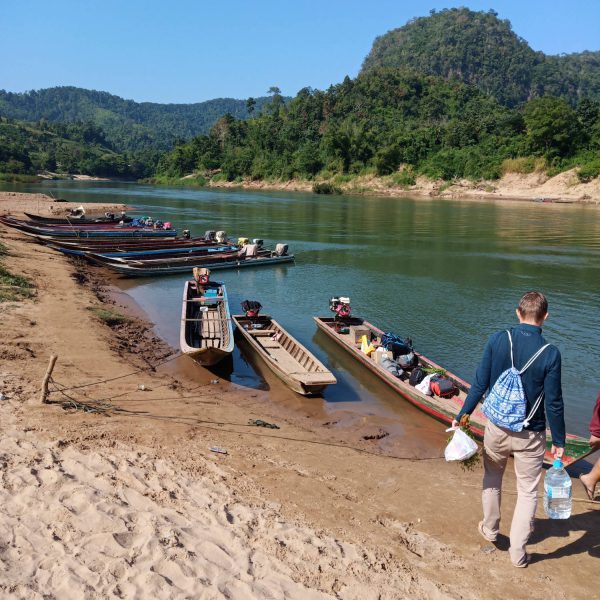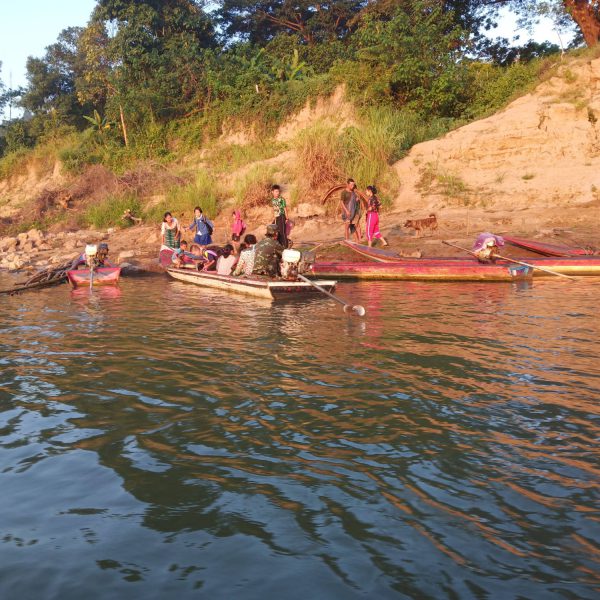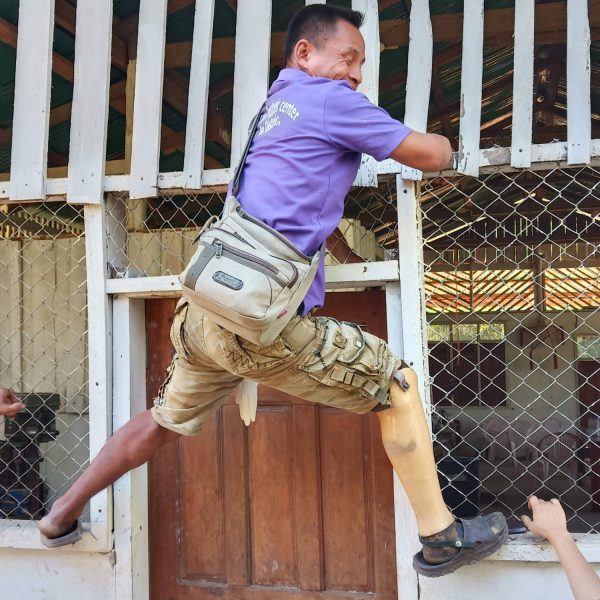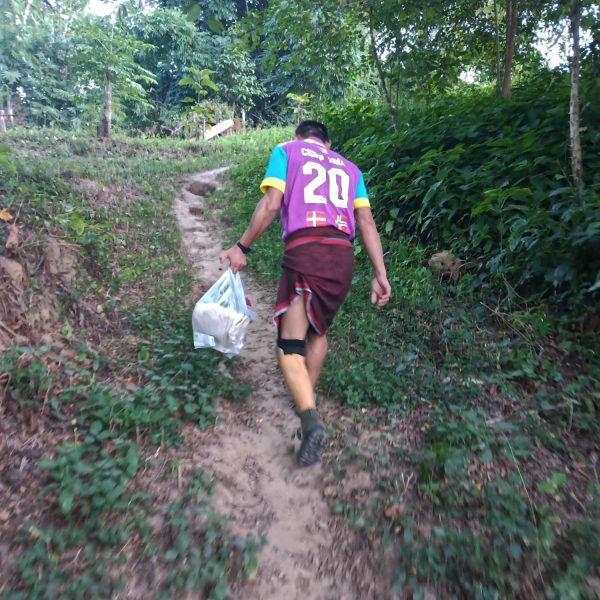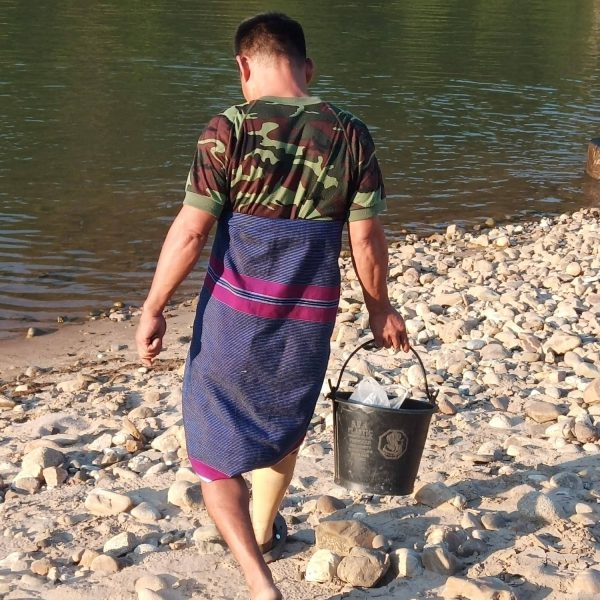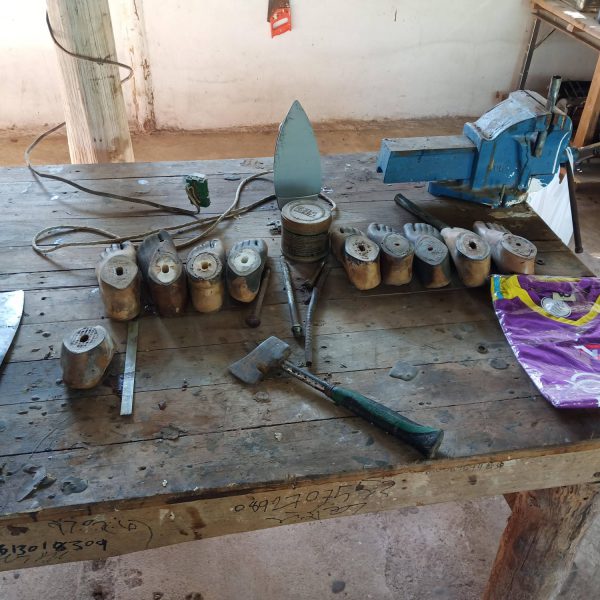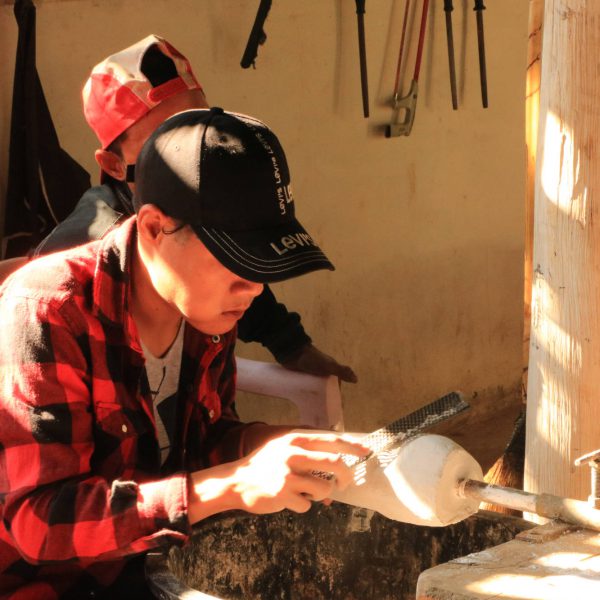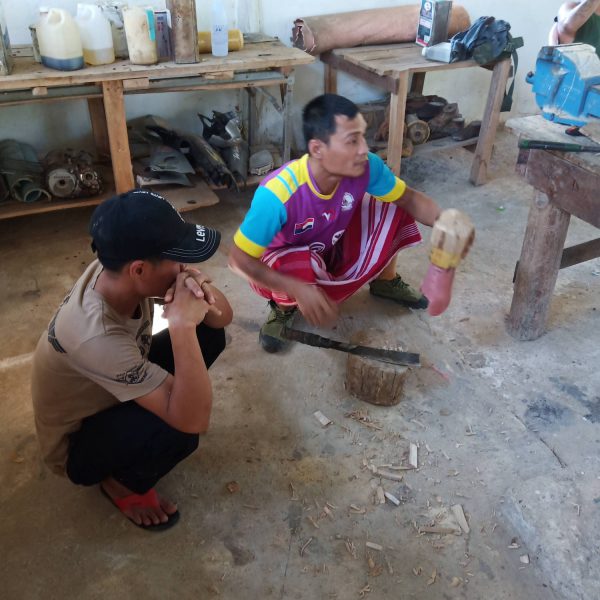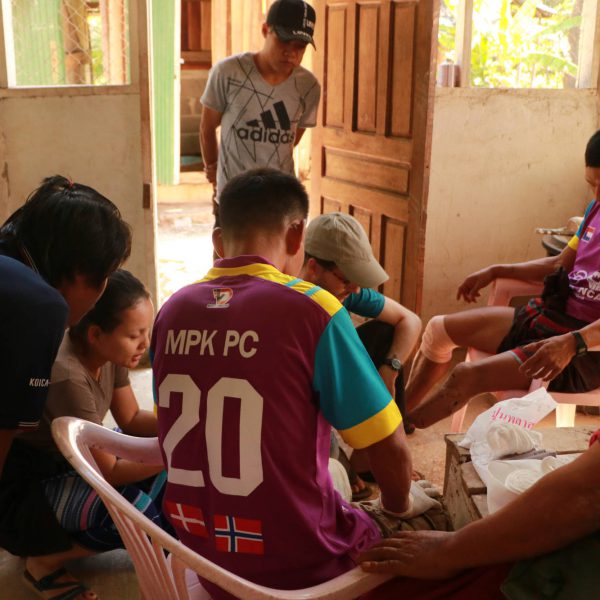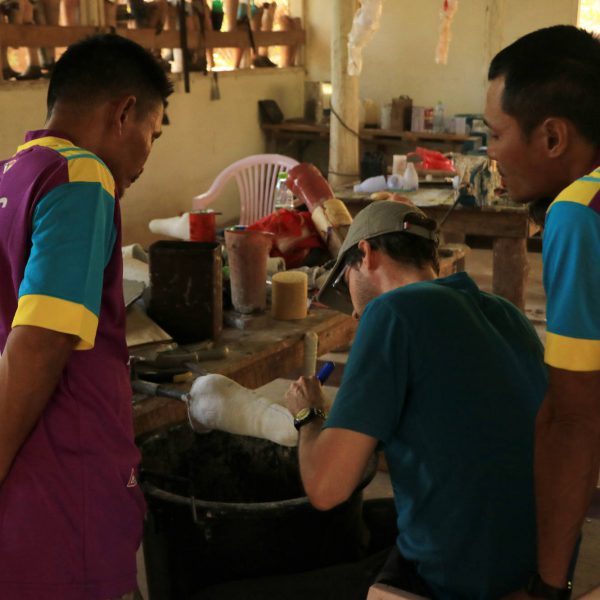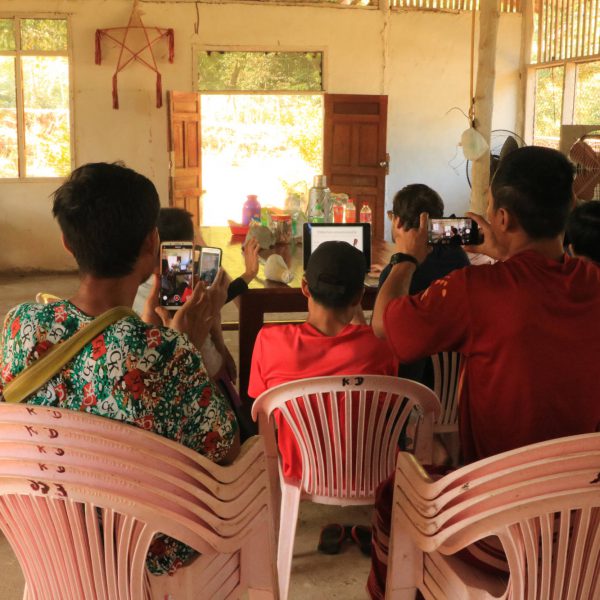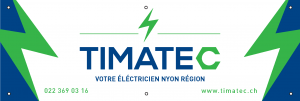Time is flying; it’s already been one month since our adventure in the jungle.
We went there for about ten days to a village with an orthopedic workshop that was created in order to help people who lost their limbs because of the civil war and landmines. Our goal was to encourage them in their work and give them tools to deepen their professional knowledge by presenting testing various techniques.
Most of the technicians who work there have lost a limb themselves. They make the prosthesis with the resources at hand, which means with minimum equipment.
What is most impressive is that they can make a prosthesis without electricity, which is no simple task. Observing them at first, I asked myself what I could bring to them in their specific context, since they have such an incredible freedom of movement…
Indeed, I saw them climb over walls or carry a person on their back with their artificial limb despite their amputation. I also asked them if they had any pain with their prosthesis and they tended to answer that everything was fine and that patients usually get used to their artificial limbs. We are far from the concept of having a prosthesis that has to fit the patient.
However, as things progressed, we clearly saw what elements we could bring, and we were able to start the training.
During that time, I have been challenged in the way I say things, especially as I saw them work. Culturally it is rude to point to out a mistake; it’s as if you were saying that the person had no skills. This reminded me of some advice I got from a Swiss friend who has been working in Myanmar for more than ten years. He told me that he managed his team by asking questions so that in the end, the people had to think about what they were doing and find the solution themselves. It’s really a great concept, however difficult for me to put into practice, as I like to say things as they are! But by being sensitive to this and trying it, I could see their trust and respect growing daily and in the end, I had more freedom to give them advice.
One of the technicians asked me if I could make him a new prosthesis and beyond the joy of being able to work again, I was grateful to have the opportunity to show them new techniques in a very practical way in order for them to improve their skills and knowledge. When the time came to try it out, I was relieved and thankful because he adopted the new prosthesis straight away. If not, the new techniques would have lost their credibility.




